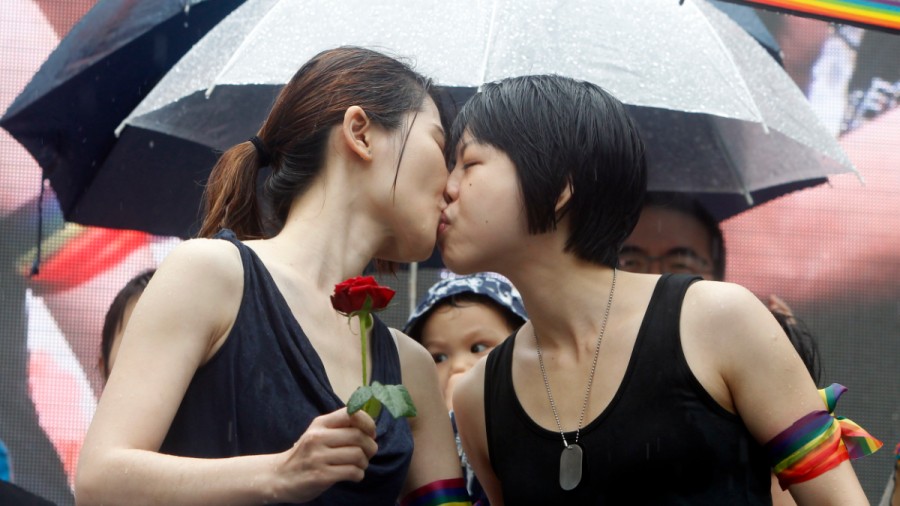Same-Sex Marriage Legalized in Taiwan
By Ashish Valentine

Same-Sex Marriage Legalized in Taiwan
By Ashish ValentineFollowing a constitutional court decision in 2017 that ruled the Taiwanese civil code’s definition of marriage as between a man and a woman a violation of the “people’s right to equality,” Taiwan’s parliament approved a law legalizing same-sex marriage in a 66 to 27 majority. Taiwan is now the first country in Asia to have done so. Lawmakers could choose between three proposed laws, two of which would legalize “same-sex family relationships” or “same-sex unions” rather than “marriages,” and ultimately chose to send the measure explicitly referring to marriage to send to President Tsai Ing-Wen’s desk for final approval. The constitutional court had given parliament a deadline of May 24, 2019 to enact the measure. A series of national referendums held last November, however, saw a majority of voters choose to restrict the civil code’s definition of marriage to between a man and a woman, resulting in reduced energy at the parliamentary level for full legalization.
In its current state, the measure thus doesn’t put same-sex marriages on completely equal footing with heteronormative ones. In accordance with the referendum result, the right to marry for same-sex couples exists outside Taiwan’s civil code, restricts adoption rights for same-sex couples and only allows for marriage between Taiwanese nationals or between nationals of countries that also recognize marriage equality - so a Taiwanese national couldn’t marry a national of Hong Kong or South Korea, where same-sex marriage is not legal.
Joining us to discuss the new law, and to talk more about queer issues and identity in Taiwan is Assistant Professor of Women’s and Gender Studies and Sociology at the University of Michigan-Dearborn Amy Brainer, who researches queer and transgender family issues in Taiwan.